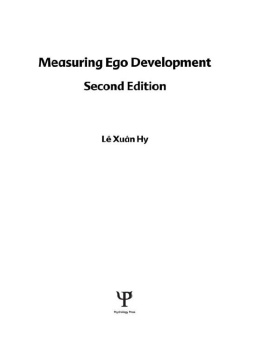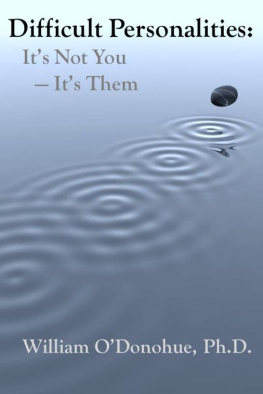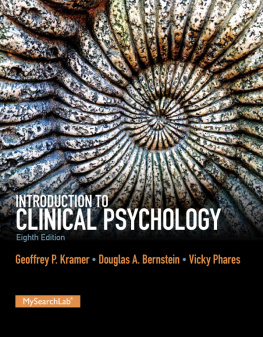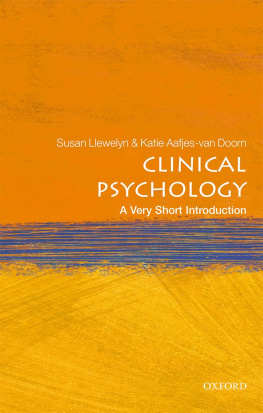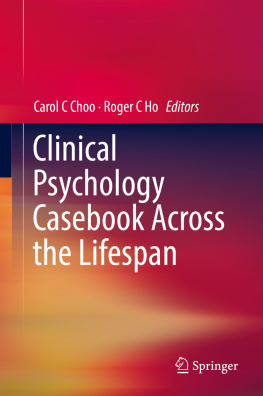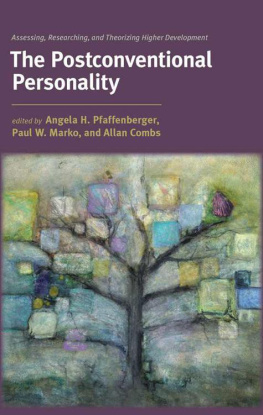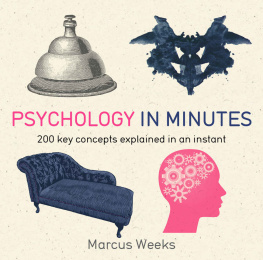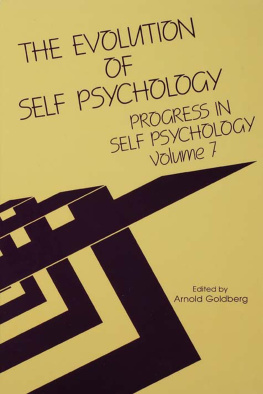Lˆ-Xuƒn Hy - Measuring Ego Development (Lea Series in Personality and Clinical Psychology)
Here you can read online Lˆ-Xuƒn Hy - Measuring Ego Development (Lea Series in Personality and Clinical Psychology) full text of the book (entire story) in english for free. Download pdf and epub, get meaning, cover and reviews about this ebook. year: 2014, publisher: Taylor and Francis, genre: Children. Description of the work, (preface) as well as reviews are available. Best literature library LitArk.com created for fans of good reading and offers a wide selection of genres:
Romance novel
Science fiction
Adventure
Detective
Science
History
Home and family
Prose
Art
Politics
Computer
Non-fiction
Religion
Business
Children
Humor
Choose a favorite category and find really read worthwhile books. Enjoy immersion in the world of imagination, feel the emotions of the characters or learn something new for yourself, make an fascinating discovery.
- Book:Measuring Ego Development (Lea Series in Personality and Clinical Psychology)
- Author:
- Publisher:Taylor and Francis
- Genre:
- Year:2014
- Rating:5 / 5
- Favourites:Add to favourites
- Your mark:
- 100
- 1
- 2
- 3
- 4
- 5
Measuring Ego Development (Lea Series in Personality and Clinical Psychology): summary, description and annotation
We offer to read an annotation, description, summary or preface (depends on what the author of the book "Measuring Ego Development (Lea Series in Personality and Clinical Psychology)" wrote himself). If you haven't found the necessary information about the book — write in the comments, we will try to find it.
Lˆ-Xuƒn Hy: author's other books
Who wrote Measuring Ego Development (Lea Series in Personality and Clinical Psychology)? Find out the surname, the name of the author of the book and a list of all author's works by series.
Measuring Ego Development (Lea Series in Personality and Clinical Psychology) — read online for free the complete book (whole text) full work
Below is the text of the book, divided by pages. System saving the place of the last page read, allows you to conveniently read the book "Measuring Ego Development (Lea Series in Personality and Clinical Psychology)" online for free, without having to search again every time where you left off. Put a bookmark, and you can go to the page where you finished reading at any time.
Font size:
Interval:
Bookmark:


Lawrence Erlbaum Associates, Inc., Publishers Published 2014 by Psychology Press
711 Third Avenue, New York, NY 10017 and by Psychology Press
27 Church Road, Hove, East Sussex, BN3 2FA Psychology Press is an imprint of the Taylor & Francis Group, an informa business Copyright 1996 by Lawrence Erlbaum Associates, Inc. All rights reserved. No part of this book may be reprinted or reproduced or utilised in any form or by any electronic, mechanical, or other means, now known or hereafter invented, including photocopying and recording, or in any information storage or retrieval system, without permission in writing from the publishers. Trademark notice: Product or corporate names may be trademarks or registered trademarks, and are used only for identification and explanation without intent to infringe. Cover design by Gail Silverman Library of Congress Cataloging-in-Publication Data Hy, L Xun.
Measuring ego development / L Xun Hy, Jane Loevinger. p. cm. Loevinger's name appears first on the earlier edition. ISBN 0-8058-2060-4 (c : alk. paper).
ISBN 978-0-805-82060-7 (hbk) 1. Sentence Completion Test. I. Loevinger, Jane. II.
| BF698.8.S35H9 1996 155.283dc20 | 96-6008 CIP |
The publisher has gone to great lengths to ensure the quality of this reprint but points out that some imperfections in the original may be apparent.
The forthcoming companion volume, Technical Foundations for Measuring Ego Development, will give technical details, including the construction of the first edition and the methods employed in its current revision, sources of subjects, and the reliability and validation of the test, including its earlier versions.
The method for scoring sentence completions presented in this manual was originally evolved for a study of women and adolescent girls, and the first edition of the manual (1970) claimed no more. By the time it was published, however, the method had already come into use in studies of men and boys. Since then, it has been used with widely varying samples, and the test has been translated into several other languages. The wide adoption testifies to the need for such a test. The present revision of the 1970 manual incorporates three major improvements: It is based on data from and is intended for use with both males and females; its format is easier to use, according to students; the examples cited reflect current public attitudes.The choice of ego development as the variable to measure was not arbitrary or accidental. It is the master trait (though not what is usually called a trait), second only to intelligence, as a kind of hidden hand. That is to say, no matter what a psychologist sets out to measure with a test, intelligence plays a big part in the score; next to intelligence, the variable called ego level appears to be a major determinant in measurable individual differences. There are other ways of describing it and other modes of access to it, although the manual was never seen as just another psychometric device for clinicians and researchers. Our aim in constructing the scoring manual was also to deepen knowledge of personality. Correspondingly, those who master the scoring method acquire more than just another psychometric technique; the tacit component of scoring is the same thing as knowledge of ego development.
An abstract knowledge of the construct cannot duplicate the insights encoded in the scoring method. Another volume (Loevinger, 1976) has shown some of the relations of the concept of ego development to other similar conceptions, such as Kohlberg's (1964) moralization of judgment, C. Sullivan, M. Q. Grant, and J. D.
Grant's (1957) interpersonal integration, Isaac's (1956) interpersonal relatability, Perry's (1970) intellectual-ethical development, and others. In contrast to those approaches, focused primarily on single aspects, definition of ego level in terms of all of its manifestations can be viewed as a strength of the method. At the same time, it is an obstacle to the inexperienced rater or to any rater who scores by rote. The number of aspects to be kept in mind is almost impossibly large. Fortunately, most raters find themselves sufficiently attuned to the conception to discover many clues within themselves. At the same time, if intuition sufficed, our labors would have been unnecessary.
Scoring without the manual is much less reliable and valid than scoring with the manual. A surprising number of sheer clerical errors occur during scoring, even when conscientious professional psychologists are the raters. Hence we recommend working in teams of no fewer than two, at least until the technique is thoroughly familiar, and checking every step even after that. Research work should depend on the consensus of two or more raters if possible; exceptions should only be made with raters of demonstrated competence. The test is intended for group administration. (However, major differences in instructions are, in effect, a new and different test.) Most subjects spend about 20 or 30 minutes completing the form. (However, major differences in instructions are, in effect, a new and different test.) Most subjects spend about 20 or 30 minutes completing the form.
An experienced rater takes about 20 minutes scoring a protocol. To master the scoring system takes from 2 to 3 weeks of study, of course not full time, if the rater immerses him or herself in one or two items per day. We strongly recommend that anyone who wishes to use the test follow exactly the training program outlined in . As early studies have shown, the scoring system can be mastered by these exercises. There have been no formal tests of persons trying to score without following the exercises, or without using the manual, and a person who does so has no right to claim to be using this method. Most raters can profit by checking some of their scoring with an experienced rater if one is available.
Failing that, two people can criticize each other, which is, after all, the method originally used. About a year's graduate work in psychology or its equivalent in technical training is a desirable prerequisite for manual users. The corresponding intellectual level is indispensable. No amount of intuition or sensibility can substitute for a disciplined knowledge, and no amount of technical training can make a first-class rater out of someone whose personal limitations bar him or her from free access to intuition and sensibility. At the same time, a highly trained clinician or a person who insists on deep interpretation of every sign may be grossly misled in this context. Sentence completions are not read for deep, hidden, or unconscious meanings.
The meaning to be scored is the one that the subject recognizes as the one he or she meant. The logic of ego theory dictates that only those with a relatively high ego level can become good raters of high level protocols. The chief access to a person's ego level is precisely that it limits what he or she can conceive and perceive; that limitation holds for raters as well as subjects. Fortunately, the manual and experience do extend a person's range. In general, groups such as professional psychologists will have people whose scores on the Sentence Completion Test (SCT) will range from the Self-aware Level through the Autonomous Level, with most of them probably at the Conscientious or Individualistic Levels. (These remarks are based on a number of small studies drawing on such subjects.) Theoretically, persons at the Self-aware Level are not first-rate raters, at least for the highest levels; however, there are no data on that point.
Font size:
Interval:
Bookmark:
Similar books «Measuring Ego Development (Lea Series in Personality and Clinical Psychology)»
Look at similar books to Measuring Ego Development (Lea Series in Personality and Clinical Psychology). We have selected literature similar in name and meaning in the hope of providing readers with more options to find new, interesting, not yet read works.
Discussion, reviews of the book Measuring Ego Development (Lea Series in Personality and Clinical Psychology) and just readers' own opinions. Leave your comments, write what you think about the work, its meaning or the main characters. Specify what exactly you liked and what you didn't like, and why you think so.

